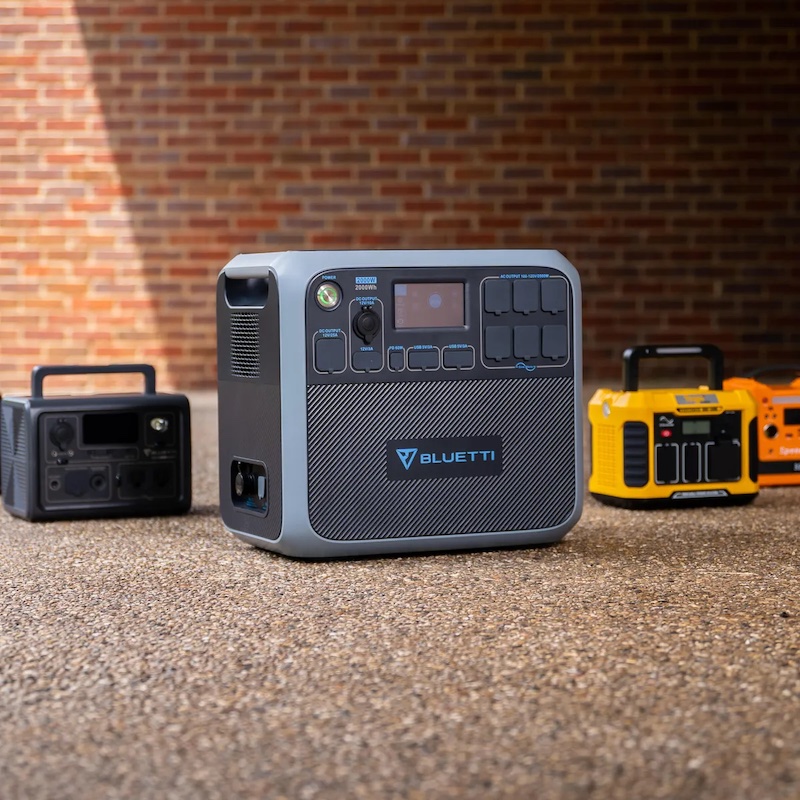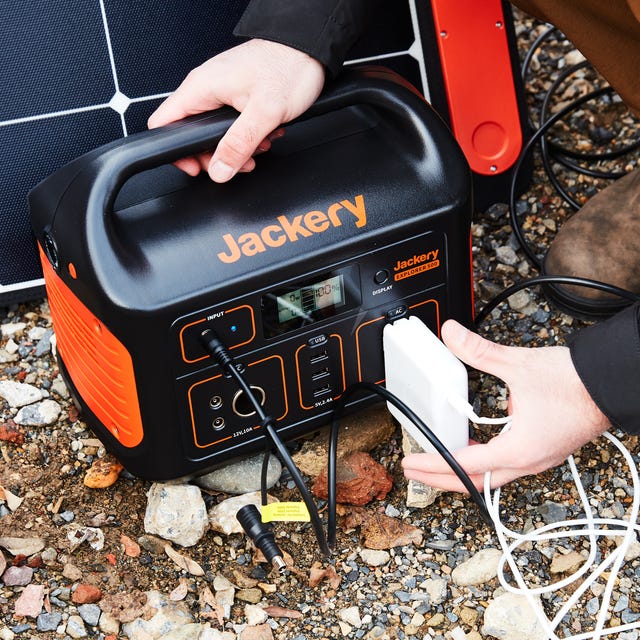Introduction
In today’s fast-paced world, many people find solace and enjoyment in heading out into the great outdoors for a camping adventure. Whether it’s a weekend getaway or an extended trip, camping offers a chance to escape the hustle and bustle of everyday life and reconnect with nature. However, for those who still want to enjoy some modern conveniences during their camping trip, a portable generator can be a game-changer. In this comprehensive guide, we’ll explore everything you need to know about portable generators for camping, including the benefits, types, considerations, and top recommendations.
Part 1: Benefits of Portable Generators for Camping
Level 1: Convenience and Comfort
One of the primary benefits of having a portable generator for camping is the added convenience and comfort it provides. With a reliable power source, campers can enjoy various electronic devices, such as lighting, cooking appliances, and entertainment equipment, without the need for traditional electrical outlets. This means no more worrying about daylight hours or limiting the use of essential devices.
Level 2: Safety and Security
Another advantage of portable generators for camping is the added sense of safety and security they offer. Having a power source on hand can be invaluable in emergency situations, providing the ability to charge communication devices, run medical equipment, or power essential tools. Additionally, a generator can illuminate the campsite and deter wildlife or intruders, offering peace of mind to campers throughout the night.
Part 2: Types of Portable Generators for Camping
Level 1: Inverter Generators
Inverter generators are a popular choice for camping due to their quiet operation, compact size, and fuel efficiency. These generators produce stable and clean power, making them suitable for sensitive electronic devices like smartphones, laptops, and cameras. Inverter generators are also known for their parallel capability, allowing users to connect multiple units for increased power output.
Level 2: Conventional Generators
Conventional generators, also known as open-frame or standard generators, are another option for camping. These generators are usually more affordable and offer higher power output, making them suitable for running larger appliances and equipment. While conventional generators may be louder and less fuel-efficient than inverter models, they are a reliable choice for campers with higher energy demands.
Part 3: Considerations When Choosing a Portable Generator for Camping
Level 1: Power Output and Runtime
When selecting a portable generator for camping, it’s essential to consider the power output and runtime required for your specific needs. Determine the total wattage of the devices and appliances you plan to run, and choose a generator that can accommodate the load while delivering adequate runtime on a single tank of fuel. It’s also wise to factor in any additional power needs for charging batteries or operating intermittent equipment.
Level 2: Portability and Ease of Transport
Since camping often involves setting up and breaking down campsites, portability is a crucial consideration when choosing a generator. Look for compact and lightweight models with ergonomic handles, wheels, or carrying cases for easy transport. Consider the terrain and conditions of your camping destinations to ensure the generator can be maneuvered comfortably, whether it’s across rough terrain or into a vehicle for transport.
Part 4: Top Recommendations for Portable Generators for Camping
Level 1: Honda EU2200i Portable Inverter Generator
The Honda EU2200i is a highly regarded portable inverter generator known for its quiet operation, exceptional fuel efficiency, and reliable performance. With a maximum output of 2200 watts, this generator is ideal for powering various camping appliances and electronic devices. The EU2200i features advanced inverter technology, parallel capability, and a compact design that makes it a popular choice among outdoor enthusiasts.
Level 2: Champion 3800-Watt Dual Fuel Portable Generator
For campers who require a higher power output and flexibility, the Champion 3800-Watt Dual Fuel Portable Generator is an excellent option. This generator can run on either gasoline or propane, providing added convenience and extended runtime. With a peak power output of 4750 watts, the Champion generator is capable of running multiple appliances simultaneously, making it well-suited for larger camping groups or extended trips.
Part 5: Maintenance and Safety Tips for Using a Portable Generator While Camping
When using a portable generator for camping, it’s important to follow proper maintenance and safety tips to ensure a hassle-free and safe experience. Here are some important tips to consider:
- Regular Maintenance: It’s essential to conduct regular maintenance on your portable generator to ensure it operates efficiently. This includes checking and changing the oil, replacing the air filter, and inspecting the fuel system for any leaks or blockages.
- Safe Operation: Always follow the manufacturer’s guidelines for safe operation, including keeping the generator on a stable, level surface, and never overloading it with too many appliances.
- Carbon Monoxide Safety: Portable generators produce carbon monoxide, a colorless and odorless gas that can be deadly if inhaled. Never operate a generator inside a tent, camper, or other enclosed spaces. Always place the generator at least 20 feet away from your camping area to prevent carbon monoxide poisoning.
- Fire Safety: Keep flammable materials away from the generator and never refuel it while it’s running or hot. Store fuel in approved containers and away from the generator to prevent accidental fires.
- Inverter Generator: Consider using an inverter generator, which is quieter and more fuel-efficient than traditional open-frame generators. This type of generator is ideal for camping and provides a clean power source for sensitive electronics.
By following these maintenance and safety tips, you can enjoy the convenience of a portable generator while camping without compromising your safety.
Part 6: Choosing the Right Size and Type of Portable Generator for Camping
Selecting the right size and type of portable generator is crucial for a successful camping trip. Here are some factors to consider when choosing a portable generator for camping:
- Power Requirements: Before purchasing a portable generator, determine the total power requirements of the appliances and devices you plan to run. This will help you determine the wattage and power output needed from the generator.
- Size and Portability: Consider the size and weight of the generator, especially if you plan to transport it to different camping locations. Look for a compact and lightweight model that is easy to carry and store in your vehicle or camping gear.
- Fuel Type: Portable generators are available in various fuel types, including gasoline, propane, and diesel. Consider the availability of fuel sources at your camping destination and choose a generator that is compatible with the most convenient fuel option for you.
- Noise Level: Some campgrounds have noise restrictions, so it’s important to choose a generator with a low decibel rating to avoid disturbing other campers. Inverter generators are known for their quiet operation and are an excellent choice for camping trips.
- Run Time: Look for a generator with a longer run time, especially if you plan to use it for extended periods without access to power outlets. A generator with an eco-mode or fuel-efficient features can help conserve fuel and extend the run time.
By considering these factors, you can choose the right size and type of portable generator that best suits your camping needs.
Part 7: Best Practices for Setting Up and Operating a Portable Generator While Camping
Setting up and operating a portable generator while camping requires careful consideration and best practices to maximize its performance and ensure safety. Here are some best practices to follow:
- Location of the Generator: Place the generator on a flat, stable surface away from any flammable materials and at least 20 feet from your camping area to prevent carbon monoxide poisoning.
- Grounding: Follow the manufacturer’s guidelines for grounding the generator to prevent the risk of electrical shocks. Use a grounding rod and proper grounding equipment as recommended by the generator manufacturer.
- Electrical Connections: Use heavy-duty extension cords to connect your appliances to the generator, and avoid overloading the generator with too many devices. Follow the recommended wattage and amperage limits for safe and efficient operation.
- Maintenance Checks: Conduct regular maintenance checks on the generator, including inspecting the fuel and oil levels, air filter, and spark plug. Clean the generator’s air vents and cooling system to prevent overheating.
- Storage and Transportation: Store and transport the generator in a secure and upright position to prevent fuel spills and damage. Always secure the generator in your vehicle to prevent it from tipping over or shifting during transportation.
By following these best practices, you can set up and operate your portable generator safely and effectively while camping. Always refer to the manufacturer’s guidelines and user manual for specific instructions on your generator model.
Conclusion
In summary, portable generators offer a myriad of benefits for camping, including added convenience, comfort, safety, and security. When selecting a generator for camping, consider the type, power output, portability, and other essential factors to ensure it meets your specific needs. By investing in a reliable portable generator, campers can enjoy a more enjoyable and worry-free outdoor experience, with the freedom to power essential devices and equipment wherever their adventures take them.
One of the primary benefits of having a portable generator for camping is the added convenience and comfort it provides. With a reliable power source, campers can enjoy various electronic devices, such as lighting, cooking appliances, and entertainment equipment, without the need for traditional electrical outlets. This means no more worrying about daylight hours or limiting the use of essential devices.



